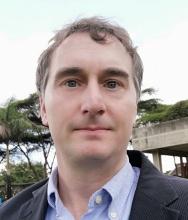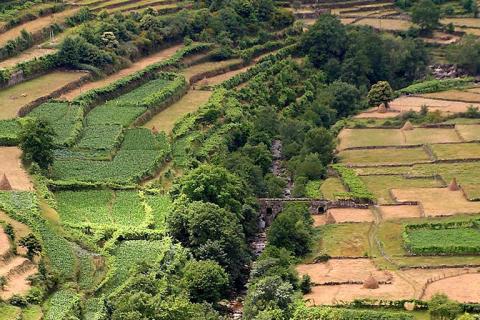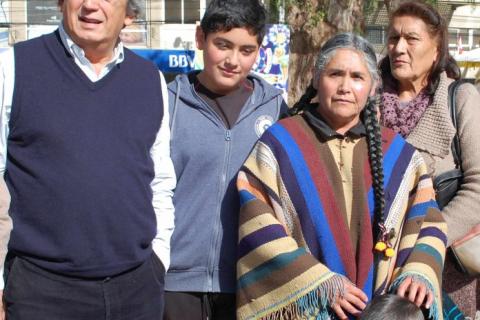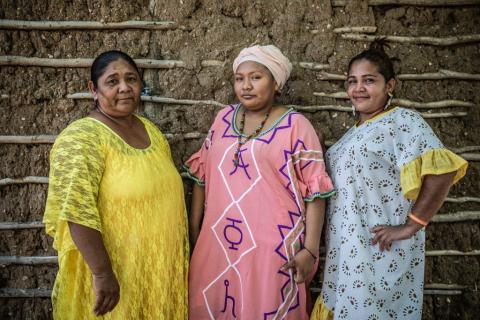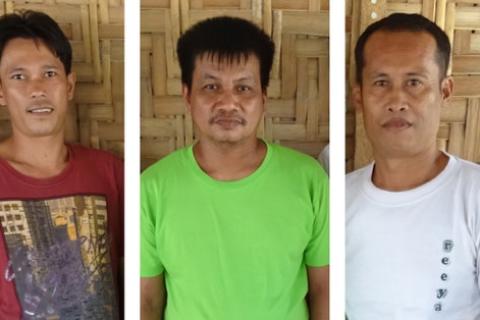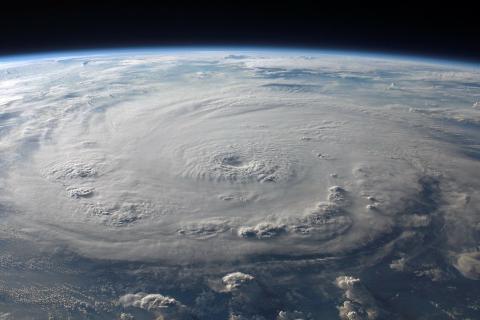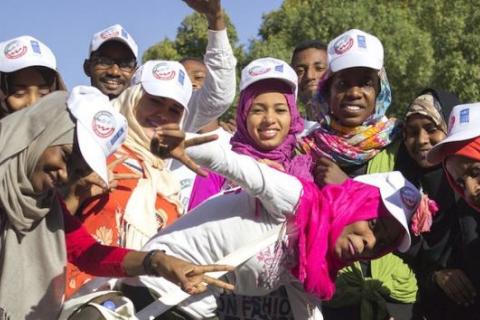Neil Sorensen joined the Land Portal as its Communications Specialist in October 2015. He has extensive experience leading communications for international organizations and developing relationships with civil society, donors, intergovernmental agencies, the media and the private sector. Previously, Neil worked for the International Fund for Agriculture Development (IFAD) as a Governing Bodies Officer and Strategic Adviser to the Secretary of IFAD. He has also led communications for three international organizations, including the International Land Coalition, the International Federation of Agricultural Producers (IFAP) and the International Federation of Organic Agriculture Movements (IFOAM). He holds a Master’s degree in Global Diplomacy from the University of London School of Oriental and African Studies (SOAS) as well as a Bachelor’s degree with a double major in German and Sociology from St. Cloud State University.
Details
Location
Contributions
Displaying 571 - 580 of 1145The Land Portal Foundation Helping to Build AGROVOC Community of Experts for LandVoc Scheme with Online Course and One-Day Workshop in 2020
The Food and Agricultural Organization (FAO) of the United Nations will work together with The Land Portal Foundation to create a community of experts for AGROVOC’s LandVoc scheme, enriching AGROVOC’s content, relevancy and use for the land and agricultural sector with an online course, along with a one-day workshop in May, 2020.
Land conference ends with call for actions to help root corruption out of sector
The 2019 Conference on Land Policy in Africa ended in Abidjan Friday November 29th with academic institutions pledging to work with traditional leaders in coming up with solutions to land governance challenges on the continent in an effort to root corruption out of the land sector.
Stakeholders attending the five-day conference made various calls at the end of the meeting but perhaps the most profound one was by the continent’s traditional leaders who made a commitment to review cultural practices and beliefs that have long denied women access to land.
Pygmy Indigenous leader imprisoned on false charges for defending land rights against ''conservation''
In the Democratic Republic of Congo, indigenous pygmy communities displaced from their lands for “conservation” and a community leader imprisoned for defending their rights
Colla Indigenous leader criminalized for resisting Canadian mining projects in Chile
Ercilia Araya is the President of Pai-Ote, a Colla Indigenous community of 60 people in the Atacama Region of Northern Chile. Since 2014, Ercilia has been criminalized and harassed for defending her community’s land rights against mining projects, and denouncing the pollution of sacred water sources in the Andes.
The ancestral territory of Pai-Ote is of great mineral wealth and includes the “Maricunga Strip”, one of the most important gold districts in the country. At least a dozen gold mining projects, most of them Canadian, are operating there.
Death threats for defending land and water from a coal mine: Force of Wayúu Women in Colombia
Members of the organization Fuerza de Mujeres Wayúu (Force of Wayúu Women) have received death threats and been subject to defamation and stigmatization for opposing the harmful effects of a mining project in La Guajira, Colombia.
Force of Wayúu women is part of a group of four organizations that filed a nullity claim for the environmental license granted to the multinational company Carbones de El Cerrejón, which owns one of the largest open pit coal mining mines in the world. The presence of the mine in the region has had a devastating effect on the quality of li
Sign the petition: Call on President Duterte to release the ‘Compostela 5’ and protect land rights defenders and the environment in The Philippines
Ranked as a country most vulnerable to the impact of climate change, The Philippines is also the most dangerous place in the world to defend land rights and the environment. President Duterte’s government has enabled seizures of Indigenous lands by an environmentally damaging gold and copper mining project. When communities stand up to defend their land, they face threats, intimidation, criminalisation and even murder.
Serving a seven year prison sentence for defending the Cahabón River
Bernardo Caal is an indigenous Q’eqchi leader from Guatemala currently serving a seven year prison sentence. His crime? Defending the Cahabón River, one of the largest in the country, against two hydroelectric dams.
The river is of plays a central role in the lives of 195 Q’eqchi communities in the municipality of Santa María de Cahabón, in the department of Alta Verapáz. Today it is under threat from seven hydroelectric projects that have already destroyed hectares of primary forests and hills that are sacred to the Q’eqchi.
International Anti-Corruption Day 2019: Time to Act Against Corruption and the Climate Crisis
Solving the climate crisis is possible, but vested economic interests and a lack of political will are in the way.
We can’t tackle the climate crisis without tackling corruption.
International Anti-Corruption Day
On this International Day, I urge people everywhere to continue to work on innovative solutions to win the battle against corruption and to ensure that precious resources serve the peoples of the world.

